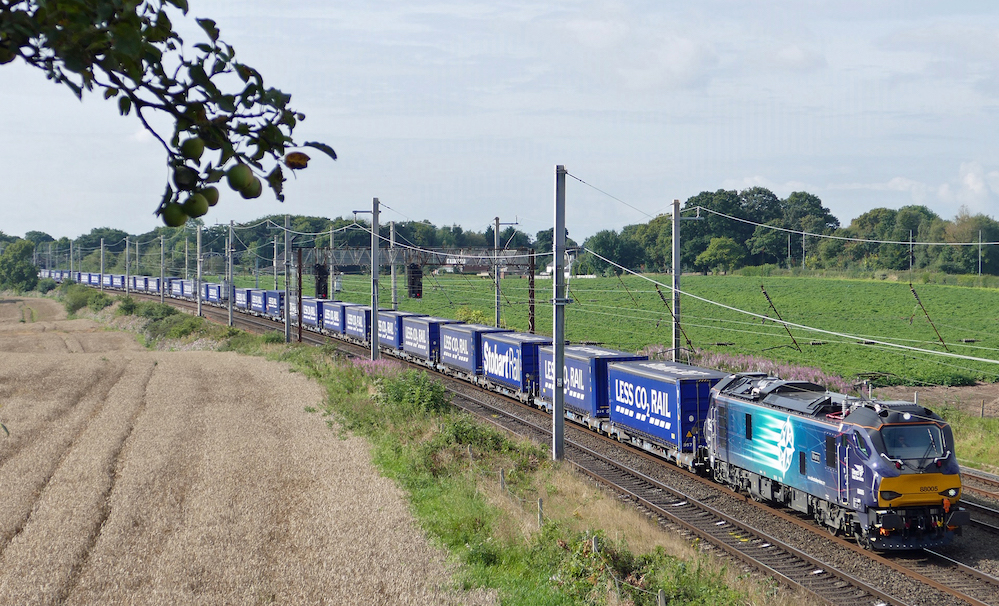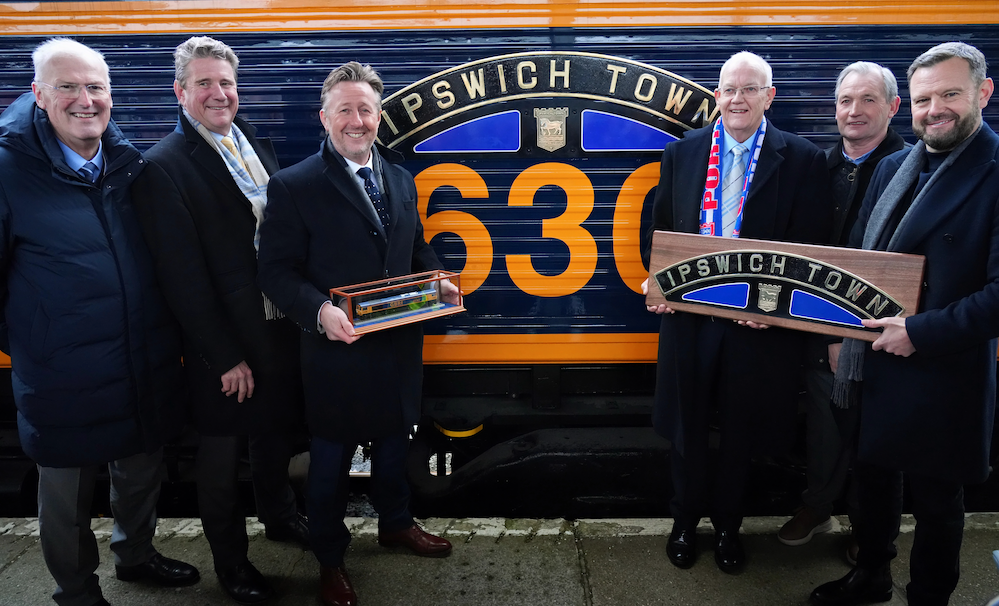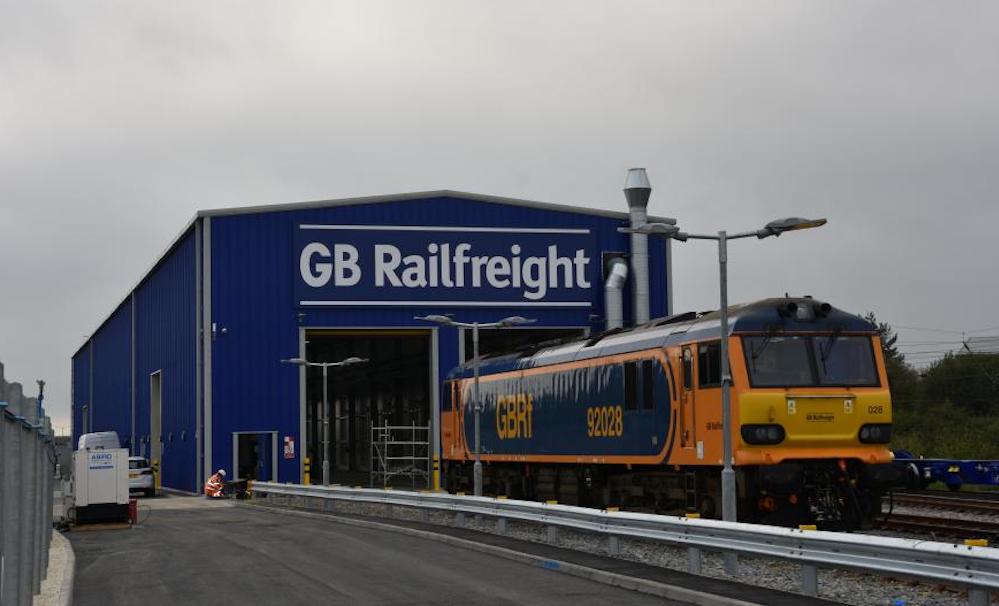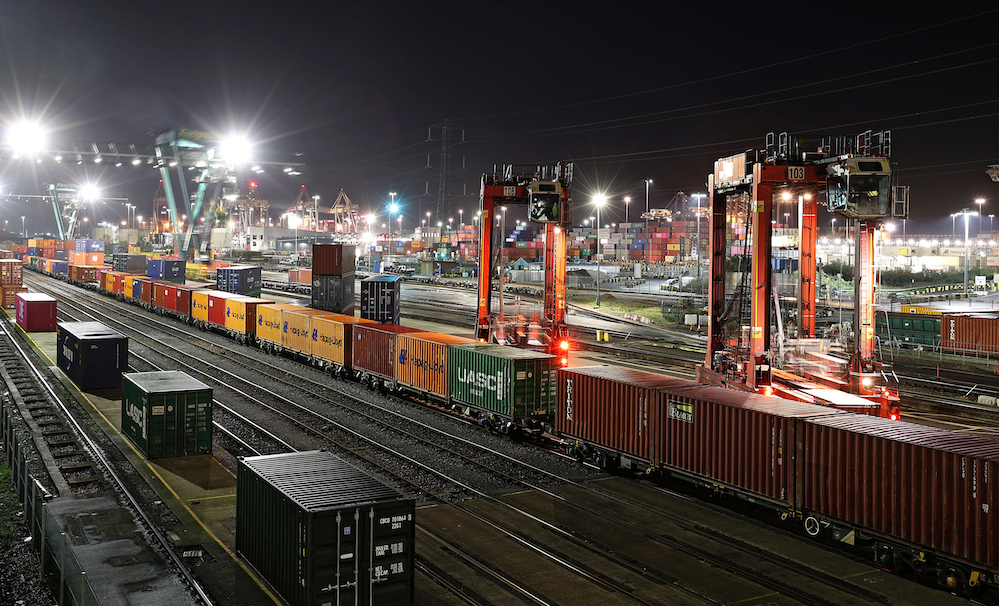Trains of up to half a mile long are helping the rail freight industry deliver more goods for consumers and reduce UK carbon emissions.
Since the start of 2020, Network Rail and rail freight operators have collaborated to allow freight trains to move more goods each time they run, and to operate more efficiently on the network. The UK rail freight sector has played a vital role during the pandemic in moving critical goods such as food and medicine. With reduced demand for passenger travel, trains have been rescheduled to make better use of network capacity, unlocking benefits for rail freight customers and the UK economy.
Key highlights include:
- Several trains have been temporarily lengthened to 775m (half a mile or over seven football pitches in length) long, allowing 12-14 more containers to be carried each time. This includes trains between Southampton and Leeds, Manchester and Birmingham, and between Daventry and Grangemouth. Together, this saves an additional six million road miles (that’s 12 trips to the moon and back) and saves 12,600 tonnes of CO2e per year.
- Eight trains conveying aggregates materials from the Peak District and Herefordshire into urban centres have been lengthened to allow them to carry 2200t increased from 2000t, saving 750,000 road miles and 1,400 tonnes of CO2e per year.
- Steel trains between Scunthorpe and Teesport have been lengthened allowing up to 1000t (the equivalent of 250 Asian elephants) more to be moved on each train.
- A daily service from Mossend to Daventry is temporarily benefiting from a one-hour reduction in journey time, enabling greater productivity. A sustainable solution would release 10 twin platform intermodal wagons through improved asset utilisation.
As well as the significant carbon savings from these initiatives there is a growing body of evidence of the benefits of more efficient freight schedules on air quality emissions. Recent analysis shows that trains which are frequently taken off the main rail network and put into loops, to allow other trains to pass, emit 14-20% more NOx and particulates than non-stop freight services.
Network Rail and the freight operators continue to work closely together to identify further priorities for train lengthening, as well as services that would benefit from improved journey time. These trains will form a package of service improvements, which will be included in the development of the December 2021 timetable. In the intervening period Network Rail and the freight operators will continue to identify short-term opportunities to run longer and heavier trains, and speed up schedules, using the additional capacity created as a result of the thinning out of services.
Maggie Simpson, RFG Director General said: “Rail freight is already acknowledged for its environmental performance, but there is never room for complacency. Allowing freight trains to carry more goods and operate more efficiently on the network is an important measure for decarbonisation and for UK productivity. Working together the industry has made significant progress this year, and we look forward to seeing more trains improved in the coming months.”
Charlene Wallace, interim Director of Freight and Director of National Passenger and Customer Experience at Network Rail said: “During the pandemic we’ve seen the crucial role that rail freight plays for our economy. That is why we’ve listened to what our customers and their end users have asked for and we’re committed to getting more goods onto Britain’s rail network over the next 12 months.”
Neil McNicholas, Managing Director of UK Rail Services of at Freightliner, said: “Freightliner welcomes the support Network Rail has provided to identify capacity to run a number of longer and heavier trains. Transporting more freight on each train and speeding up journey times supports both improvements to the productivity and efficiency of services and drives further environmental benefits, by reducing the carbon emissions of each tonne of freight moved. We welcome the cross-industry commitment to continue this programme and identify further opportunities to run longer trains and improve the average speed of services.”
Roger Neary, Head of Sales at DB Cargo UK, said: “We are delighted to be working with our customers and Network Rail to make the concept of jumbo freight trains become a reality. Such services have allowed us to increase capacity for our customers while making our operations more efficient through reduced train driver and terminal resources and increased wagon utilisation.”
Chris Connelly, Managing Director of Direct Rail Services said: “Throughout this challenging year, rail freight has proved that it is absolutely essential in keeping our supermarkets and shops stocked.
“Our Mossend to Daventry trains utilise the state-of-the-art Class 88 locomotive to carry the equivalent of 38 lorry loads of vital goods the 310-mile distance with zero exhaust emissions, making it the greenest way to transport goods by far. “The new timetabling allows these services to run the same route more quickly, with less time spent waiting in sidings. The extra time helps the entire supply chain, meaning goods are on shelves sooner – fantastic for consumers.”







